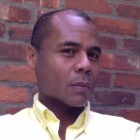Interview via E-mail
February 6, 2014
Matthew Andrews, CA+T Interviewer
Jan M. Padios, Scholar
Matthew Andrews: How did you first become interested in the study of customer service call center workers in the Philippines?
Jan Padios: My research on call center workers actually began with my interest in consumer cultures and class identity in the Philippines. Many cities in the country have really gigantic shopping malls, for example, and I was curious about who could access these spaces, what it means for them to do so, and what it signals about culture, space, and the nation. Then, while doing archival research in Manila in 2006, I took note of what seemed like an explosive growth in the call center industry and the sort of “buzz” about call center agents having a lot of purchasing power because of their comparatively high wages. As journalists, scholars, and almost everyone I talked to in the Philippines about call center agents notes, their entry-level wages are often comparable to or can exceed the salaries made by professors or accountants.
Ironically, the archival research I was doing at the time was on US business expansion and investment in the Philippines during the American colonial era. I was interested in the ways that Filipinos in that time period were not only colonial subjects of US empire but the empire’s consumer subjects as well—and how these two things, consumption and colonialism, are tied together. As I started to investigate call centers more, however, I realized that they spoke to most of my research interests, not just about consumer culture. Transnational call centers like those in the Philippines—where workers mostly provide customer, technical, and other services for people in the US, UK, Australia, and New Zealand (i.e., English-speaking countries)—raise issues about US colonialism and neocolonialism, Filipino labor, and the economic and social philosophy of neoliberalism. It’s “just” 1-800 numbers, but at the same time they seem to have a lot of meaning.
So, even though my overarching research interests stayed the same, I decided to focus on something in the contemporary moment. Pretty soon thereafter I realized that studying call center work demanded that I think a lot about some new research topics too, like this idea of intangible or immaterial labor; gender, sexuality, and social reproduction; technology and new types of work that emerged in the late twentieth century; and labor organizing.
MA: You have described your research as engaging in interdisciplinary methodology, with a focus on ethnography. What drew you to interdisciplinarity in your approach to your research and to ethnography in particular?
JP: Part of my response to this question is pretty straightforward: I did graduate studies (M.A. and Ph.D.) in American Studies, which is an interdisciplinary field. However, I think I was drawn to American Studies because of a deep commitment to uncovering the complexity of the things I wanted to study. For example, as an undergraduate student, I studied architecture. However, by the time I was ready to graduate I realized that I was less enthralled by the study of the built environment as architecture than I was with the ways social relations shape and are shaped by spatial relations, or what you could learn about cultural change from a simple piece of architecture like a park bench. I didn’t go on to research park benches, of course, but this idea that everyday things and experiences can be incredibly meaningful really started to take hold.
Then I went to work as an investigator for a public defender called The Bronx Defenders, which was a very radicalizing experience for me. I worked with and witnessed a lot of poor people of color struggling with the everyday realities of poverty, incarceration, mental illness, and domestic violence—struggles that seemed to point in many directions, such as the state, the law, education, and racial capitalism. I brought these interests with me to graduate school and even though I didn’t end up studying the prison system directly, they underpinned my commitment to interdisciplinarity. Not that I could completely articulate this at the time, though! I like to think I had the right instincts, even if I didn’t know much about the theories of power and histories of oppression that would soon become foundational to the way that I think about so many things.
Based on these experiences, I started to embrace the idea of using different methods and theories to get at complex meaning. Not that I think scholars in discrete disciplines see things one-dimensionally; I just liked the type of complexity I see in American Studies and the things that American Studies scholars are willing to do, such as view the personal as political, acknowledge people’s multiple forms of identification, trace the links between power, culture, and economy, and critique the US nation-state.
I am drawn to ethnography—which is a research method that involves talking to, listening to, interacting with, and observing people—because I’m interested in how people not only make sense of the world but also how they make the world through cultural practice, social structures, and the ever-powerful categories such as race, nation, gender, and sexuality. I think ethnographic research, when combined with textual and historical analysis and with serious attention to the different scales at which power operates, can uncover this process of “production” in ways that are meaningful.
MA: Your essay contribution in Queer Sites and Sounds focuses on a YouTube video of a young Filipino call center worker confessing his HIV-positive status. Could you speak about how you were first made aware of the video and the ways it may have influenced (e.g., enhanced, challenged) your analysis of call center workers in the Philippines?
JP: I can’t remember which came first—my knowing about the group AKMA-PTM (Aksyon Magsasaka Partido Tinig ng Masa or Farmer’s Movement—Voice of the Masses), which first posted the video, or the video itself. Either way, Joseph Ryan’s image, voice, and message have been integral to the way that I’ve been thinking about the problems I raise in my essay, “Queer Confessions.” In a longer and unpublished version of this essay, I didn’t bring up the video until the end. Yet because the figure of Joseph Ryan literally and figuratively speaks to the many issues I see connected to Filipino call center workers and the specter of HIV/AIDS, I thought it would be useful to “unpack” the video’s content and make that the center of my contribution to Queer Sites and Sounds.
The other material that I look at in the piece—newspaper articles, for example, or my own interviews with workers—allowed me to see how in the Philippines people sometimes perceive call center workers as sexual and social transgressors, and how this constitutes a major counterpoint to the dominant narrative of call centers as the nation’s “sunshine” industry. So, on one hand, the video pushed me to see that workers are aware of and want to push back against the idea that they are deviant, socially irresponsible, or that their jobs are super easy. The part of the confession in which Joseph Ryan pleads with viewers to remember the economic contribution of Filipino call center workers to the national economy, and to not judge them for “hanging around Ortigas,” illustrates this well, I think. Yet, on the other hand, I was struck by the ways that Joseph Ryan’s confession also seemed to reproduce some problematic ways of thinking about the call center industry that I critique both in the essay and in my other work.
Overall, however, the video made me think in more humanistic and less structural terms about how call center workers confront and rewrite these narratives about their work, the industry, and, indeed, their very bodies. Some new questions arose: What do Joseph Ryan’s tone and his way of relating to the viewer—in other words, his affect—suggest not only about his feelings but how feelings relate to nationalism? Why does he issue both a confession and an apology? How do the ideas of visibility and invisibility, and seeing versus hearing, illuminate dynamics about the call center industry at large? Some of these questions came from colleagues who helped me think through the video and my writing, for which I’m grateful. I mention them at the end of the essay.
MA: In your essay, you argue that the YouTube video confession problematically "secures the image of the call center industry as the nation’s savior." From your research, could you speak about organizations and/or social movements in the Philippines that counter this image, for instance, by calling for the protection of call center workers' rights?
JP: Well, calling for the protection of workers’ rights doesn’t necessarily provide a counterpoint to the idea that call center industry is an unequivocal boon to Philippine national and economic development. There are certainly organizations that are intensely interested in call center workers’ issues, such as worker health (which is a major problem because most call center employees work at night), but don’t mobilize on the basis of deeper—that is, structural and systemic concerns—about the industry. However, the recently emerged organization BIEN (BPO Industrial Employees Network, where ”BPO” stands for Business Process Outsourcing, which includes call centers) speaks out against the ways price hikes in basic goods and services like transportation or utilities are eroding not only the strength of call center wages but also continue to weaken all economically precarious groups in the country. In other words, BIEN connects call center employees’ issues to larger social issues, especially social inequality. I should also mention that during my research I met workers who also cast doubt on the ability of a service industry—and one that is reliant on global corporations, at that—to necessarily improve the Philippine national economy or livelihoods over the long term. These individuals were not part of any organization, but they asked important and difficult questions, like what will happen if the companies that need Filipino call center labor decide to move their operations elsewhere.
MA: What was your most memorable experience while conducting your ethnographic fieldwork in the Philippines?
JP: Great question. I will and can never forget the immense generosity of the people who participated in my research. People were willing to sit down with me for hours and talk about their experiences working in the industry. They also introduced me to friends and family, and they invited me to dinner, parties, and even out-of-town trips. I also think the material that I shared in my “Queer Confessions” essay also really stood out for me. It represents the kinds of things that you may not be able to see without being in a place and talking to people, like how sexual politics operate both within call center work culture but also at the scale of the nation-state.
Another thing I can’t forget is that ethnography—like any intensive research, of course—is a lot of work. At one point, my research required me to stay up all night for several weeks in a row, as I was engaged in participant observation at a call center. I know it must be exceedingly difficult for call center employees to have that kind of schedule day after day, month after month, and year after year. There is also an interesting temporality to ethnographic research, like the down time when you’re waiting to hear back about potential participant observation opportunities or are suddenly inundated with people to talk to and places to go. There’s a lot of anxiety and excitement that goes into the work. Manila is also an extremely memorable place. The traffic is unreal and definitely unforgettable.
MA: What inspires you in your research and why?
JP: I’m inspired by a lot of things in my research. I’m constantly moved by the everyday lives people lead, the struggles they are engaged in—large and small—and the pleasures and pains entailed by the process social scientists call “social reproduction,” which is the process of recreating livelihoods, households, bodies, knowledge, cultural practices, etc. anew every day. I’m also really inspired by the processes of research and knowledge production in and of themselves. Moving from one discovery to the next, stopping to think about particularly perplexing issues or concepts, building an argument and thinking about evidence—all of these components of producing knowledge are ones that I actually enjoy. With regards to writing and teaching, I am inspired by the prospect of intervention—that is, taking a debate that relies on reductive thinking, and turning it inside out or on its head, so to speak. I always feel like I need to get better at that! Overall, though, I’m inspired by the possibility that critical thinking, seeing, listening, and action can actually change the oppressive and unequal conditions which most people face day in and day out.
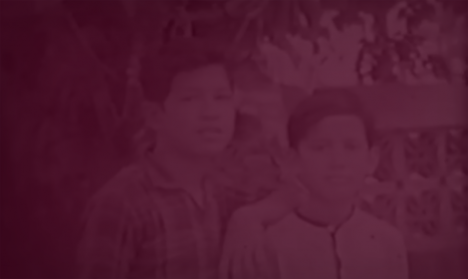

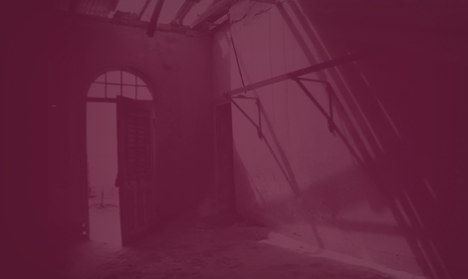

























.jpg)

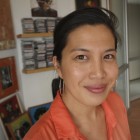



.jpg)
.jpg)
.jpg)

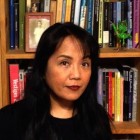
.jpg)







.jpg)



.jpg)


.jpg)




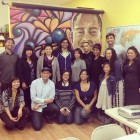
_Cropped.jpg)


.jpg)
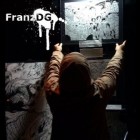

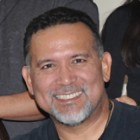



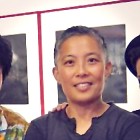
.jpg)
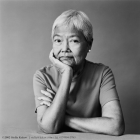
.jpg)


.jpg)
.jpg)


.jpg)
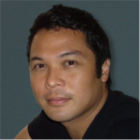

.jpg)




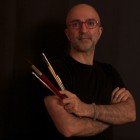



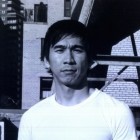


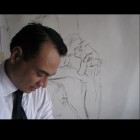
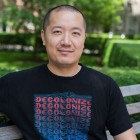



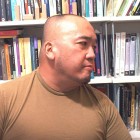
.jpg)



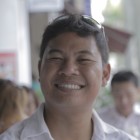


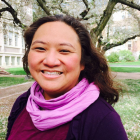



.png)




.jpg)
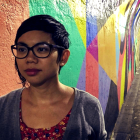
.jpg)
.jpg)

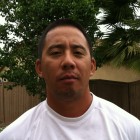


.jpg)
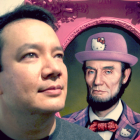
.jpg)
.jpg)



.jpg)

.jpg)


.jpg)

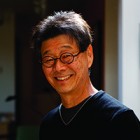
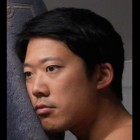


.jpg)

